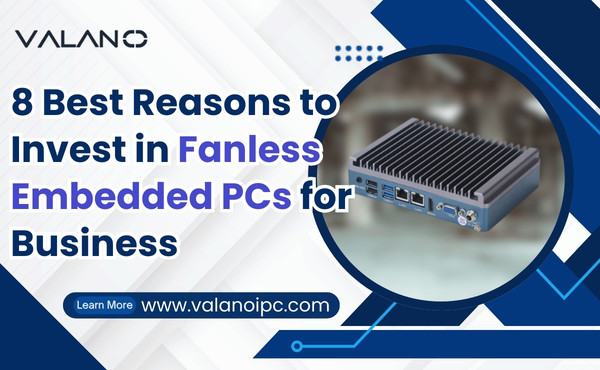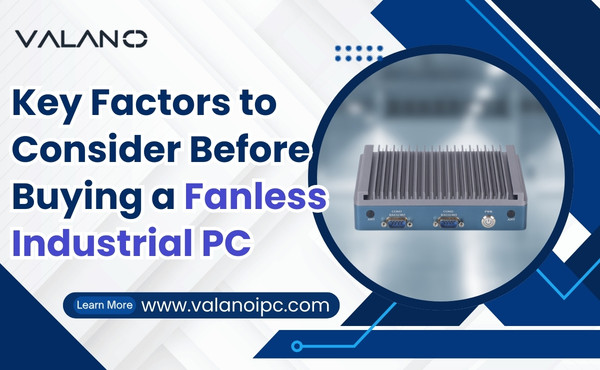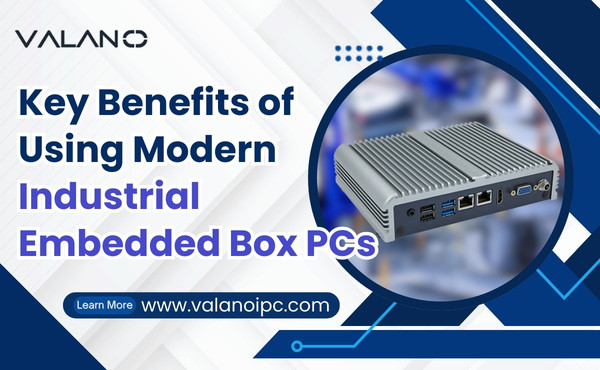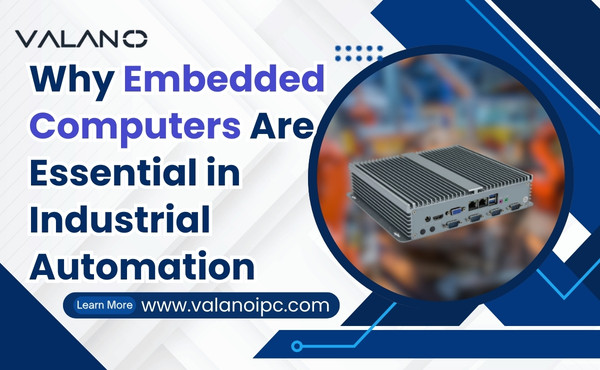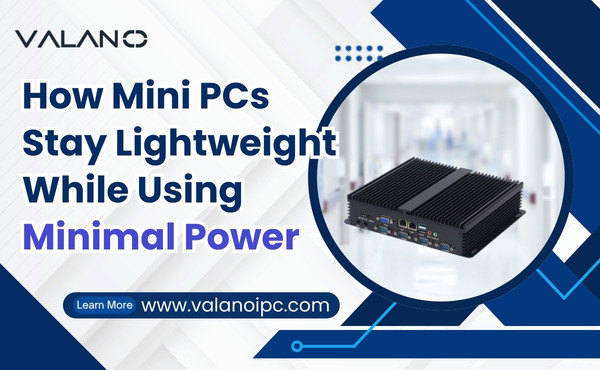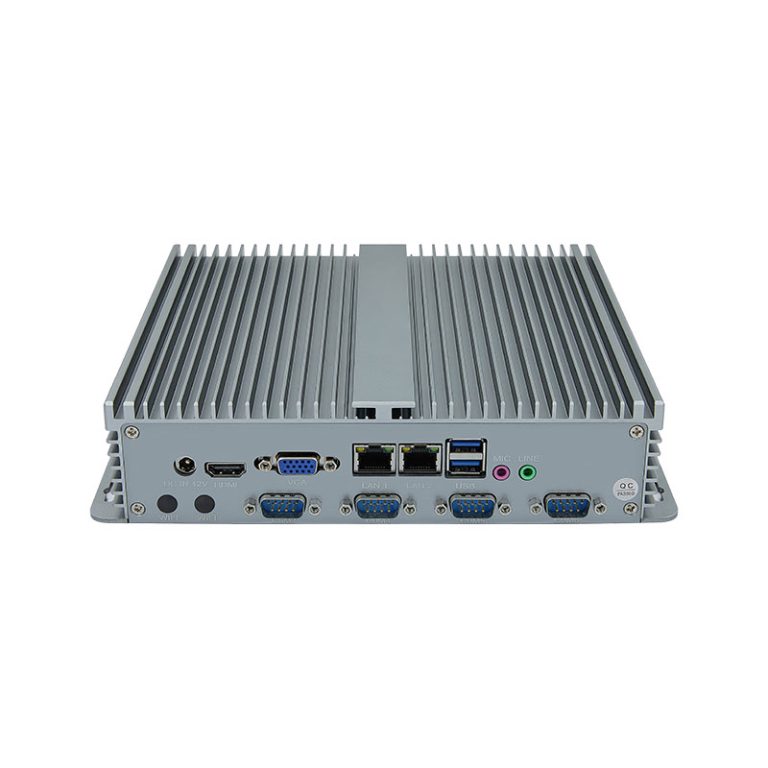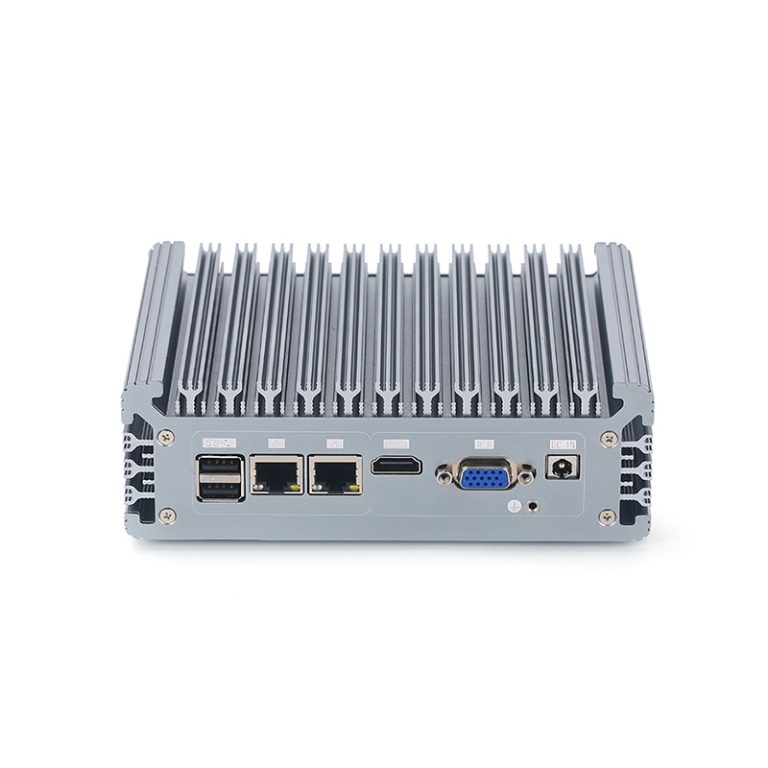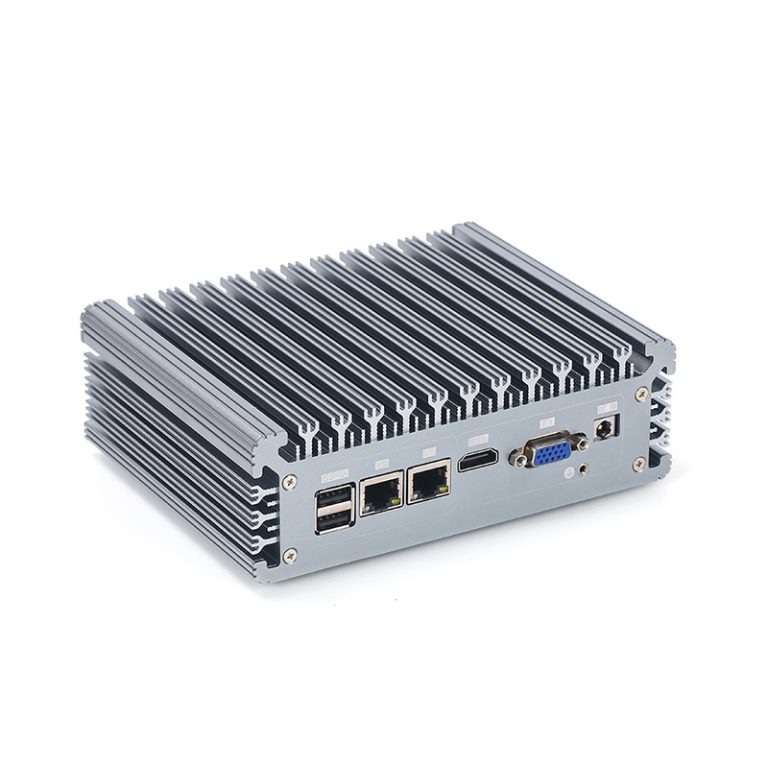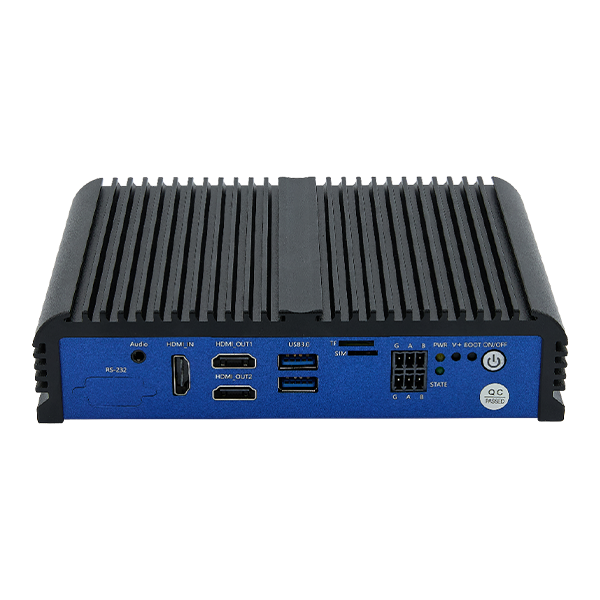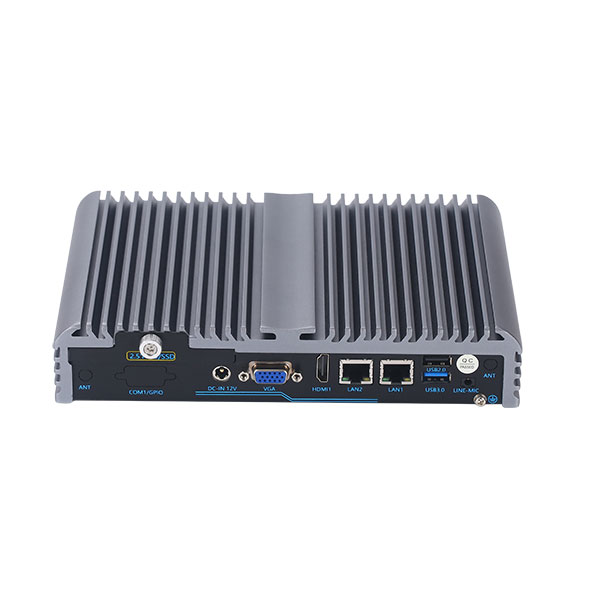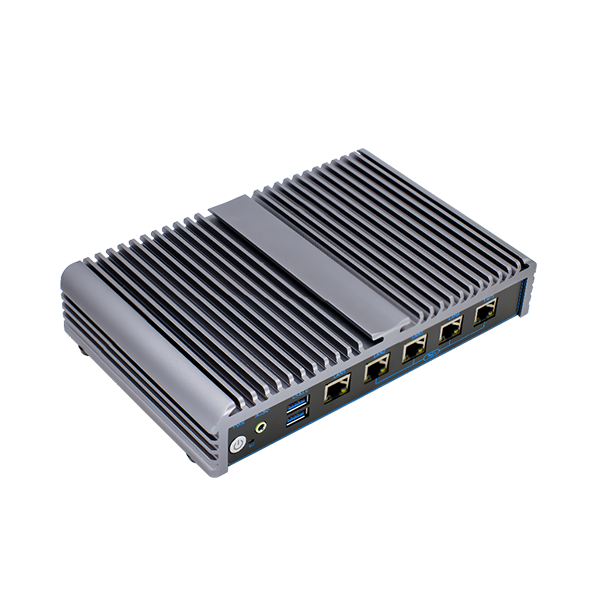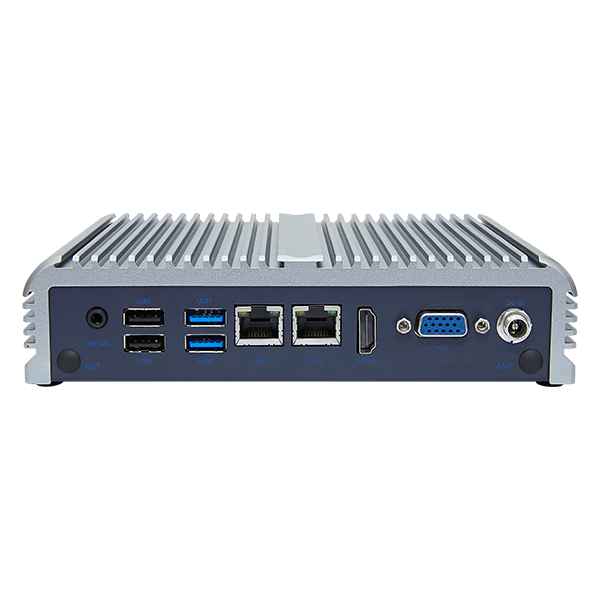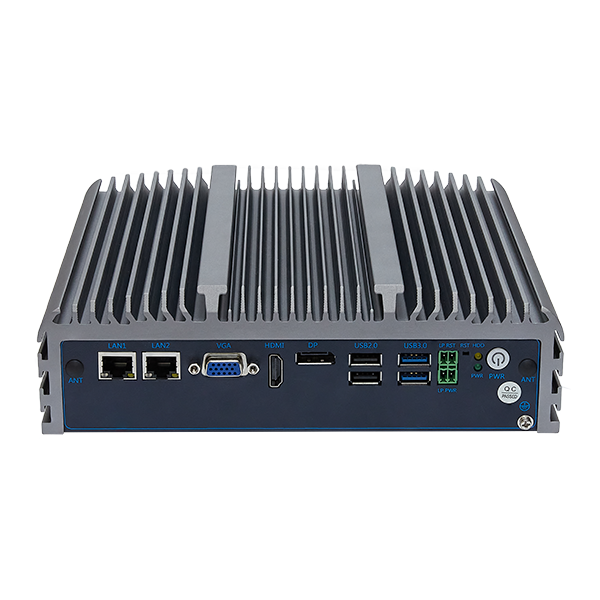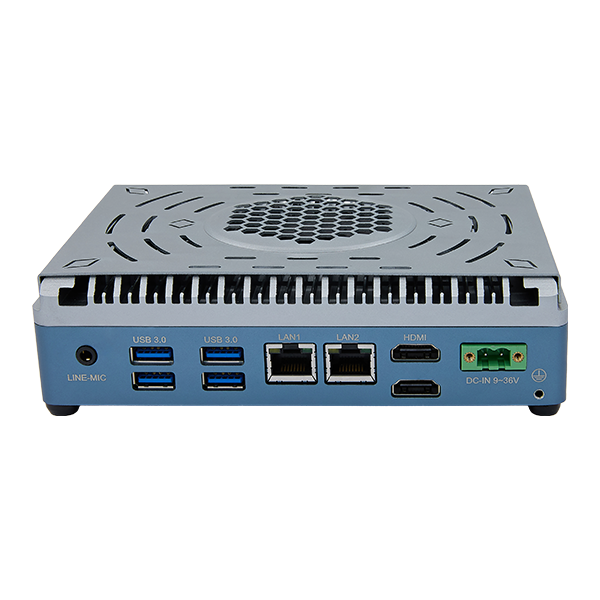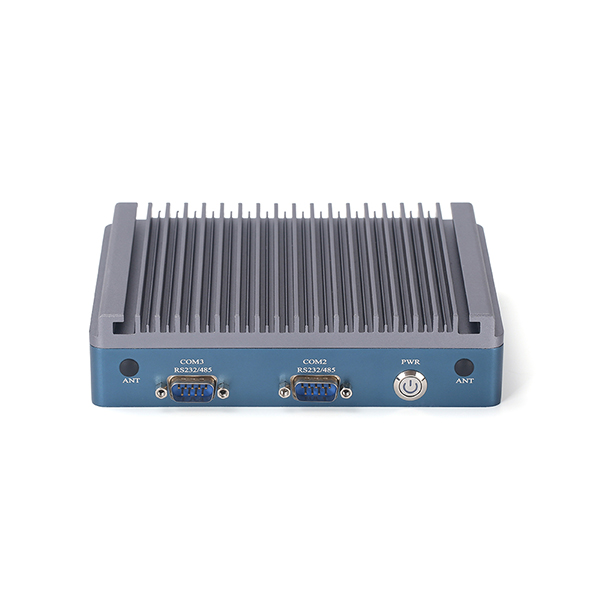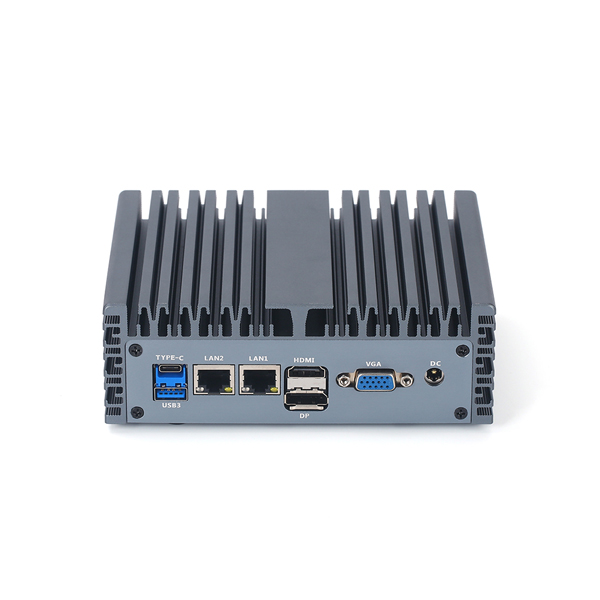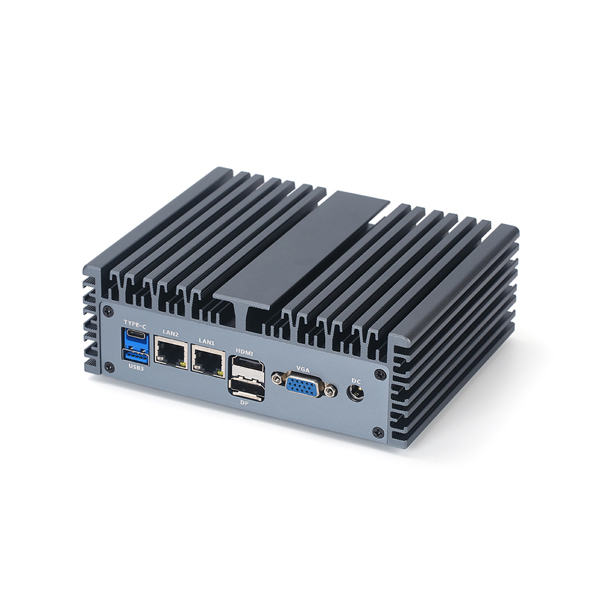Industrial environments demand computing solutions that are compact, reliable, and capable of continuous operation under harsh conditions. Traditional desktop PCs or consumer-grade mini PCs often fail when exposed to dust, vibration, extreme temperatures, or 24/7 workloads, causing costly downtime and maintenance issues.
This article guides readers through the essential features of industrial mini PCs, including processor performance, memory and storage, durability, connectivity, thermal management, and expandability. We will help you to select the best mini PC for automation, monitoring, IoT, and other applications.
Key Features to Consider for Industrial Mini PCs
Processor & Performance: The CPU is the core of any industrial mini PC. Intel Core i7/i9, AMD Ryzen 7/9, or embedded industrial CPUs provide the consistent processing power needed for continuous 24/7 operation. Whether the system is handling automation, real-time monitoring, or data-intensive processing, the right CPU ensures smooth, uninterrupted performance.
Memory & Storage: Industrial-grade DDR4 or DDR5 RAM paired with solid-state drives (SSDs) is essential. SSDs eliminate the mechanical failures of traditional hard drives and can withstand vibrations common on factory floors. High-quality RAM ensures stable multitasking and reduces the risk of system crashes during critical operations.
Durability: Industrial mini PCs must endure harsh conditions. Ruggedized cases, reinforced frames, and fanless designs protect against dust, temperature fluctuations, and vibrations. These features not only extend the device’s lifespan but also reduce maintenance frequency and operational downtime.
Connectivity: Industrial setups often involve multiple devices and sensors. A professional mini PC should include several USB ports, HDMI or DisplayPort outputs, Ethernet, Wi-Fi, and serial ports to connect to industrial equipment seamlessly. Reliable connectivity ensures efficient workflows and minimal interruptions.
Thermal Management: Heat is a major concern in compact industrial PCs. Passive cooling or optimized active cooling systems maintain safe operating temperatures while keeping noise low. Effective thermal management protects components from overheating, prevents performance throttling, and extends overall system life.
Expandability & Customization: Industrial applications evolve, and your mini PC should be able to evolve too. Support for additional storage, RAM upgrades, or specialized industrial modules allows adaptation to new tasks without replacing the entire system. This flexibility saves costs and extends the usefulness of your investment.
Top Industrial Grade Mini PCs
Valano IC01A Model
Valano’s IC01A mini pc is a compact, fanless industrial mini PC designed for silent, reliable, and energy-efficient operation in demanding environments. Powered by the Intel® N100 quad-core CPU, it delivers stable performance while keeping power consumption low, making it ideal for automation, monitoring, IoT, and industrial control applications.
Key Features:
- Fanless Aluminum Design: Ensures silent operation, reduces mechanical failures, and resists dust and vibration.
- High-Efficiency Intel N100 CPU: Provides stable quad-core performance for continuous 24/7 operation.
- Flexible Storage Expansion: Supports M.2 NVMe/SATA and SATA3.0 drives for fast, reliable storage.
- Dual Realtek Gigabit LAN Ports: Reliable wired network connectivity for industrial and embedded applications.
- Versatile I/O: Includes multiple USB ports, HDMI, VGA, COM ports, and optional Wi-Fi/4G modules.
- Compact & Rugged: Durable aluminum chassis with dimensions 235×200×52mm, designed for tight spaces, machinery, or control cabinets.
- One-Key OS Recovery: Simplifies maintenance and minimizes system downtime.
- Industrial-Grade Operation: Works in temperatures from -10°C to 50°C with 5%–95% humidity, non-condensing.
Benefits for Industrial Applications:
- Silent and reliable operation reduces maintenance costs and extends lifespan.
- Supports real-time data processing, embedded analytics, and remote monitoring.
- Compact form factor allows flexible deployment in machinery, cabinets, kiosks, or IoT setups.
- Energy-efficient design lowers operational costs while supporting continuous use.
Valano IC03 Model
Valano’s IC03 mini pc is a fanless industrial mini PC built for silent, reliable, and energy-efficient operation in demanding environments. Designed for automation, embedded systems, digital signage, and IoT applications, it combines compact size with robust performance to ensure uninterrupted industrial computing.
Key Features:
- Fanless Rugged Design: Silent, dustproof, and vibration-resistant for continuous 24/7 operation.
- Intel i5-5200U CPU: Dual-core processor (2.2–2.7 GHz) providing energy-efficient and stable performance.
- Wide Temperature Range: Operates reliably from -20°C to 60°C.
- Dual Display & Rich I/O: HDMI, DP, VGA, 6× USB, 2× COM ports, and optional wireless modules.
- Flexible Storage: Supports 1× mSATA and 1× SATA drives for SSD or HDD integration.
- Compact & Mountable: VESA-mountable chassis ideal for control cabinets, kiosks, and tight industrial spaces.
Benefits for Industrial Use:
- Silent & Stable Operation: Fanless design reduces mechanical failures and noise.
- Reliable Performance: Supports continuous operation for embedded and automation tasks.
- Flexible Deployment: Small footprint allows installation in machinery, cabinets, or remote monitoring points.
- Energy-Efficient: Low power consumption reduces operational costs and supports long-term deployment.
- Versatile Connectivity: Multiple I/O ports enable seamless integration with industrial devices and networks.
Partner With Valano
Valano offers tailored solutions, including hardware modifications, pre-installed software, and branded chassis, ensuring each mini PC meets specific project requirements. Our Fanless Industrial Mini PC combines compact size, silent operation, and industrial-grade reliability, making it a dependable choice for automation, embedded systems, and industrial computing applications.
How to Choose the Right Industrial Mini PC
Assess the environment
Selecting the best mini pc for industrial use starts with understanding the environment. Factory floors often expose devices to dust, vibration, and temperature extremes. Semi-rugged IPCs with sealed, fanless enclosures block dust and debris, keeping internal components clean and reducing overheating risks. These features make them ideal for automation systems and monitoring stations where reliability matters most.
| Factor | Description |
|---|---|
| Durability | Essential for enduring harsh conditions like high temperatures and vibrations. |
| Heat Dissipation | Choose passive or active cooling based on the environment’s temperature. |
| Dust Resistance | Sealed enclosures prevent dust and debris from affecting internal components. |
Tip: Sealed, fanless designs keep contaminants out, reduce overheating risks, and enhance long-term reliability in factory settings.
Match specs to industrial applications
Industrial applications demand specific hardware. For data processing, real-time monitoring, or control, the best mini pcs deliver high performance and stability. Devices with Intel Core i3, i5, or i7 CPUs, up to 32 GB DDR4 RAM, and fast SSD storage handle complex tasks with ease. Passive cooling and low power consumption support continuous operation. Environmental standards like IP67 and MIL-STD-810H ensure safe deployment in challenging locations.
| Component | Specification |
|---|---|
| CPU | Intel Core i3, i5, i7 (up to 8 cores) |
| RAM | Up to 32 GB DDR4-2666 |
| Storage | 2.5″ SATA SSD, M.2 NVMe PCIe card |
| Cooling | Passive cooling |
| Power Consumption | Low power CPUs |
| Standards | IP67, MIL-STD-810H, MIL-STD-901H |
| Feature | Application |
|---|---|
| Processor options | Tailored for data logging |
| Memory and storage choices | Supports various monitoring tasks |
| Connectivity options | Essential for automation integration |
Prioritize reliability, thermal management, and fanless options if needed.
Reliability drives productivity in industrial settings. Fanless mini PCs reduce maintenance downtime and eliminate concerns over fan failures. In manufacturing and logistics, switching to fanless designs improves processing speeds and lowers energy consumption. The absence of moving parts boosts longevity, making these systems the best for business and the best for productivity. For creators, fanless models offer silent operation, which is the best for video editing and the best mini workstation for automation.
- Fanless mini PCs reduce maintenance downtime.
- They improve processing speeds and energy efficiency.
- No moving parts means longer lifespan in harsh environments.
Check for long-term support and industrial-grade certifications.
Long-term support and robust warranties ensure peace of mind. Leading brands offer responsive technical support and worldwide repair services. Certifications like UL, CE, and FCC guarantee safety and reliability. Specialized standards such as IEC 60068, MIL-STD-810, and DO-160 confirm durability against shock, vibration, and altitude changes. Extended warranty plans and long-term product availability reflect confidence in the best overall mini pc solutions.
| Certification | Description |
|---|---|
| UL | Ensures safety and reliability for products in industrial settings. |
| CE | Indicates compliance with safety, health, and environmental protection standards in the EU. |
| FCC | Certifies that products meet electromagnetic interference safety guidelines in the US. |
Note: Extended warranties and quick support response times minimize downtime and foster strong business partnerships.
The best mini pc for industrial use combines best portability, rugged design, and high performance. Customization options, such as BIOS-level modifications, allow businesses to tailor systems for specific needs. The best for creators and the best mini workstation models support demanding tasks, while the best overall solutions deliver reliability and flexibility for every industrial application.
Common Mistakes to Avoid
Choosing low-performance CPUs for demanding tasks
Selecting a mini PC with a low-performance CPU can severely limit efficiency in industrial environments. Many users underestimate the demands of real-time monitoring, automation, and 3D processing. A powerful mini pc with a high benchmark score supports these tasks without lag or failure. The table below shows how CPU performance affects industrial applications:
| Benchmark Score Range | Performance Description |
|---|---|
| Under 2000 | Suitable for simple projects and limited multitasking |
| 2000 to 6000 | Good for multiple applications and moderate graphical tasks |
| Over 6000 | High-end performance for demanding tasks like 3D processing and real-time monitoring |
Industrial leaders should always match the best mini pc to the workload. Using a best budget model for complex tasks leads to slowdowns and costly downtime.
Ignoring cooling solutions in compact cases
Many buyers overlook the importance of cooling in mini PCs with a compact design. High-performance components generate significant heat in small enclosures. Without proper cooling, overheating can occur. This issue causes hardware failures and reduces system reliability. Overheating in compact industrial PCs often results in costly downtime and lost productivity. As mini PCs become more powerful, thermal management becomes critical. A powerful mini pc with passive or optimized active cooling maintains stable performance and extends device lifespan.
Tip: Always check for advanced cooling solutions when choosing the best mini pcs for industrial use. Reliable thermal management protects your investment.
Overlooking connectivity and expandability needs
Industrial applications require flexible connectivity and future-proof expandability. Some users forget to check for enough network ports, USB slots, or expansion options. Limiting upgrade possibilities forces complete replacements as technology evolves. Models with extra slots for storage, memory, or cards accommodate new devices and software demands. Planning for growth in connectivity needs saves time and money. The best mini pc supports upgrades and adapts to changing requirements.
- Choose a mini PC with options for future upgrades.
- Look for models with extra slots for storage, memory, or industrial modules.
- Plan for increased connectivity needs to avoid costly replacements.
Note: Mini PCs may seem portable, but they often require additional peripherals. Always consider long-term usability and integration with industrial systems.
Conclusion
Choosing the right industrial mini PC requires careful consideration of performance, durability, thermal management, connectivity, and future expandability. Fanless designs, ruggedized enclosures, and reliable hardware reduce downtime and extend system lifespan, while flexible configurations allow adaptation to evolving industrial needs.
Avoid low-performance CPUs, inadequate cooling, and limited connectivity to ensure efficiency and stability. By prioritizing these factors and selecting certified, industrial-grade solutions, businesses can achieve seamless operations and long-term reliability. Evaluate your environment, match specs to your applications, and invest in the best mini PC that delivers both performance and durability.





